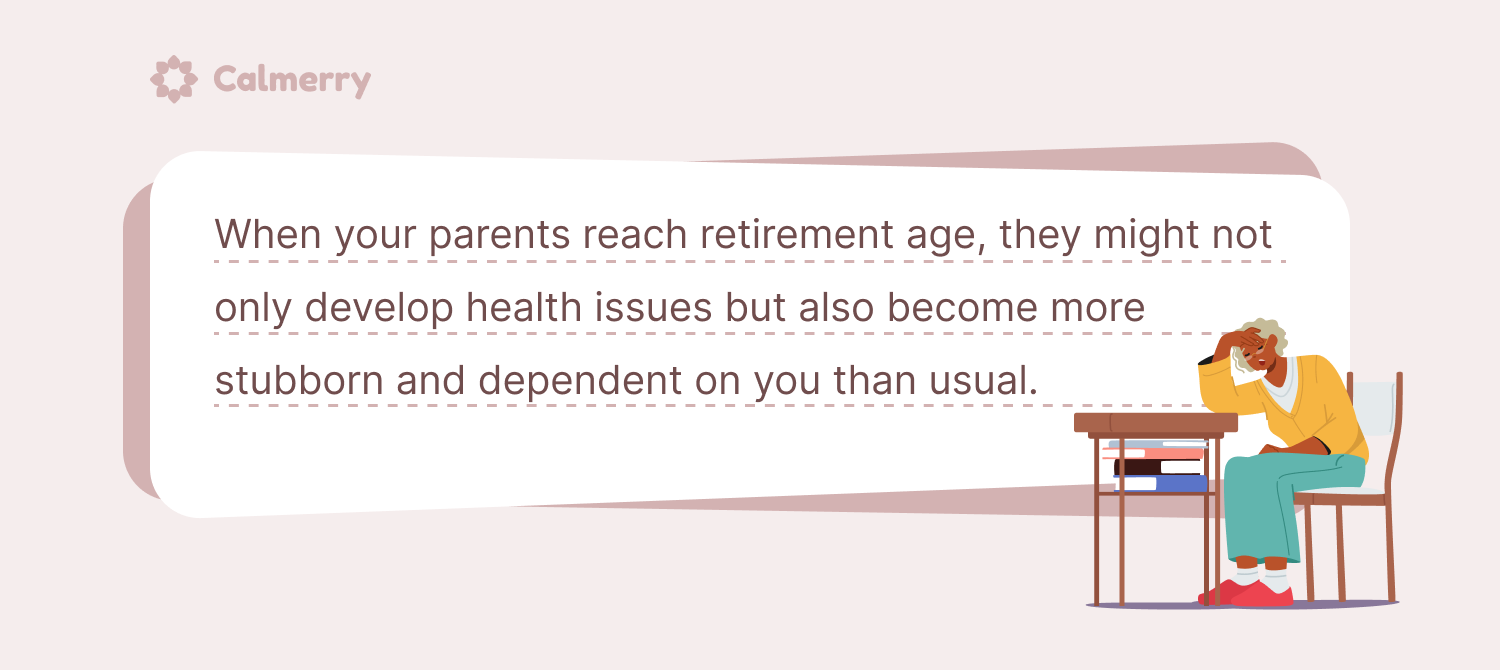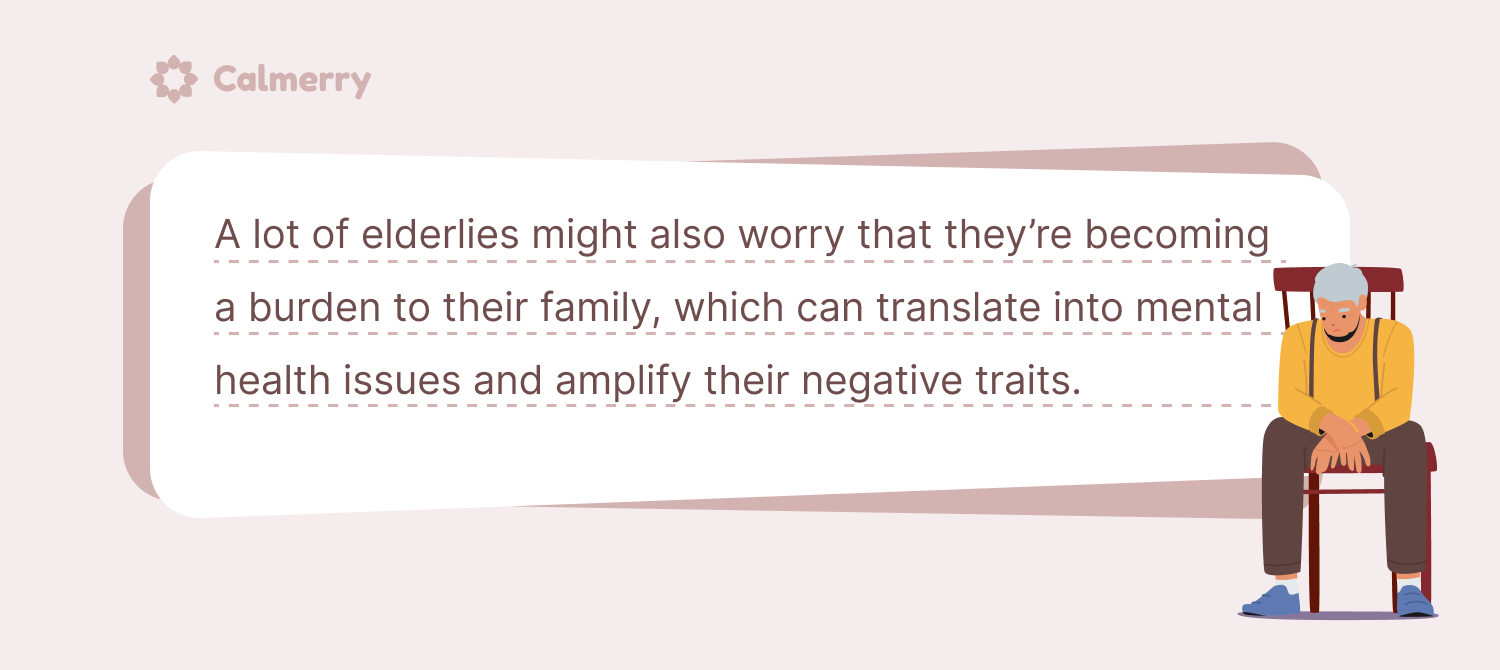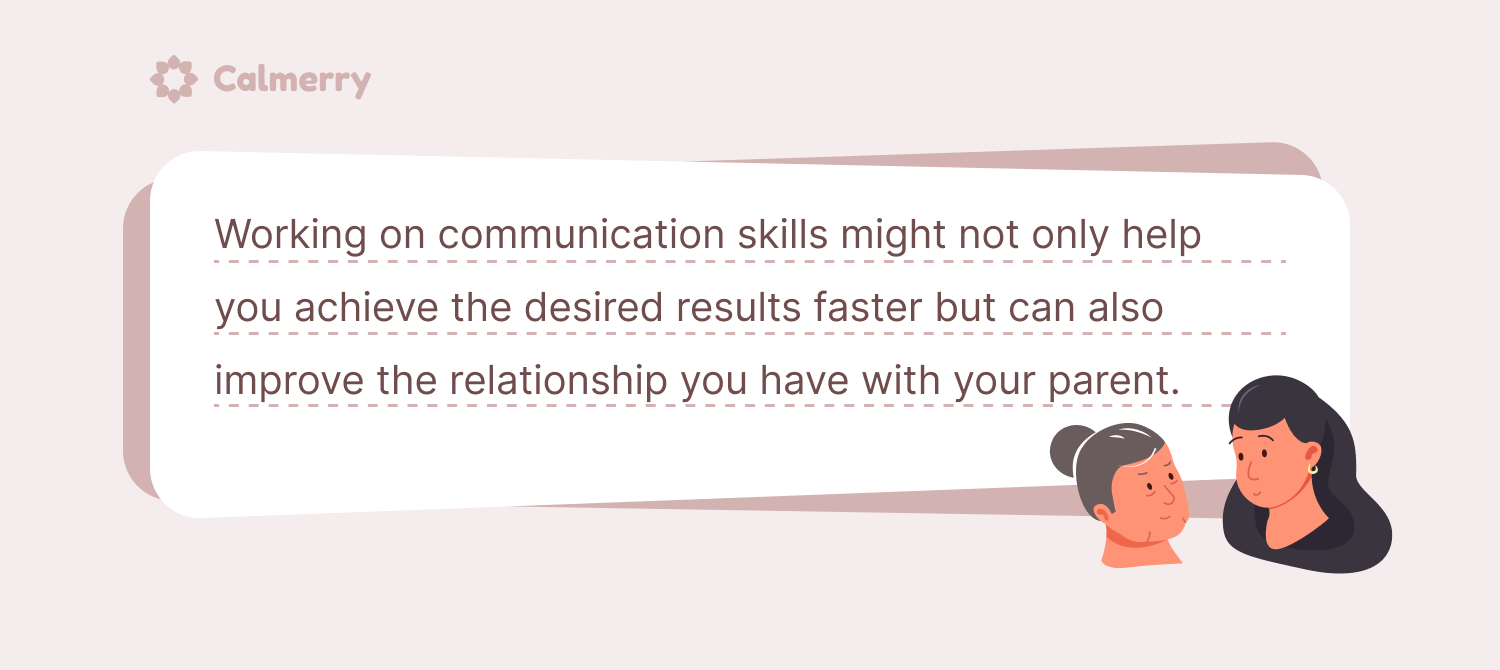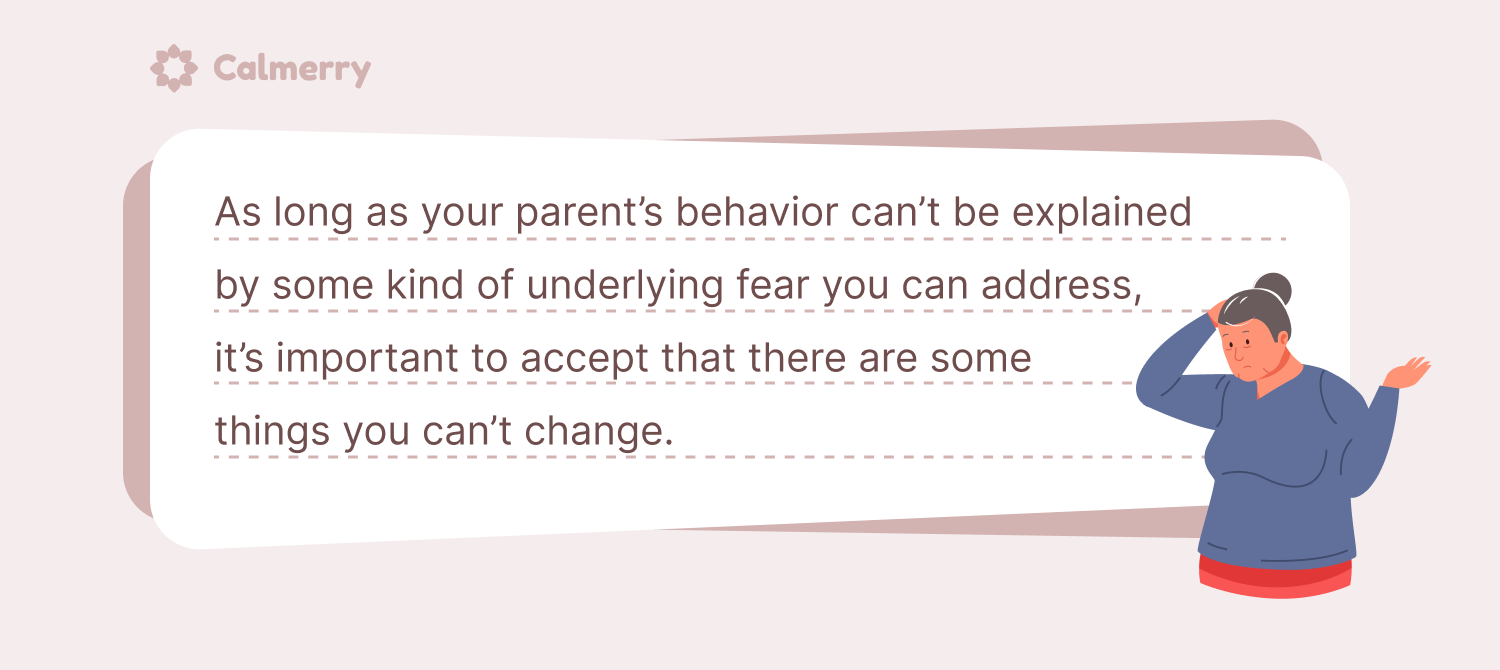How to Be Patient When Dealing With Aging Parents

You’ll always be your parents’ child, but your parents won’t always be your caregivers. At some point, it’s natural for roles to reverse a little.
And even though your old parents might not need daily care, yousa might have to give them more attention than before, which can be stressful to cope with.
Here’s how to deal with aging parents, the challenges you may face, and tips on taking care of yourself.
How do you know you should become more involved in your parents’ life?
In some cases, you might know when to step in straight away. For example, your elder parent might have had an accident and now needs help with daily tasks. Or they might have received a new diagnosis.
In other cases, the change is more gradual: a parent might slowly become withdrawn from their social circles and go through cognitive and physical changes that prevent them from being as functional as they used to be.

Each scenario requires slightly different adjustments to your routine but comes with the same challenges: you have to devote more time to your parent. And your stress level might increase.
Caring for elderly parents might make you lose patience even if you’re usually a calm person – and it’s totally normal. However, to prevent your relationship from getting worse and keep your mental health at bay, it’s important to learn how to cope.
Tips on how to deal with aging parents
No one looks forward to getting old, and some people are even afraid of it. When your parents reach retirement age, they might not only develop health issues but also become more stubborn and dependent on you than usual.
Here are a few tips on how to deal with this new dynamic.
Understand the cause
Interacting with an aging parent takes a lot of patience. They might not listen to what you have to say, become more demanding, and you might have to repeat yourself many times before they even take notice.
However, giving in to anger or frustration can lead to family conflicts and make caring for your parent even more challenging. This is why you should try to understand the cause behind their behavior.
Having more awareness can help you stay calm and focus on finding solutions.
When dealing with aging parents who act difficult, it’s helpful to remind yourself that getting older isn’t easy for anyone. By the time we retire, we might have to deal with chronic pain, go through a divorce or feel a sense of regret because our life is not turning out the way we expected.
Your elder parent is forced to accept that they’re losing loved ones and are no longer capable of doing their job, which is often an upsetting and lonely experience.

All these changes can make your parent more vulnerable, and the fear often explains their difficult behavior. For example, if your mother doesn’t want to see a doctor, it might be because they’re worried their condition has worsened. And if your father doesn’t want you to hire a carer, they might be afraid of interacting with a stranger or being forgotten by the rest of the family.
So, when your parent’s behavior feels overwhelming, try to put yourself in their shoes first.
And if your parent’s behavior stems from an underlying medical condition, it’s a good idea to learn more about it. You can look it up online and join support groups for children of parents with the same issue.
However, if there’s anything that concerns you or anything you’re unsure about, it’s worth consulting a doctor first.
Make improvements where possible
Dealing with aging parents might be frustrating when they refuse help, act difficult, or when you have too many responsibilities of your own. But once you’ve managed to narrow their behavior down to potential causes, it will be easier to come up with a plan to improve the comfort of your and their life.
For example, if your parent is irritable because they spend all day on their own and miss going to work, encourage them to join senior groups that can help them broaden their social network and get them involved in new activities.
If they worry about becoming a burden, spend quality time with them that doesn’t just involve helping them with daily tasks and running their errands.
You can also make sure that your siblings commit to some of the caring responsibilities so that your parent doesn’t feel like you have to make many adjustments in your routine just to look after them.
If you suspect they might have some undiagnosed health problems, make sure you encourage them to see a doctor.
Work on your communication skills
Getting your point across when talking to an aging parent might not be an easy task. An elderly person might often feel threatened when you try to convince them that they should change their habits or agree to be taken care of by a professional.
Instead of telling them what they should do, try using ‘I’ statements. For example, ‘I’m worried when you forget to eat and I think that getting a carer involved would help you remember’.
It’s also a good idea to leave difficult conversations for when your parent is in a good mood and less likely to get defensive.

Findings from the study that looked at individuals with dementia and their family show that caregivers tend to underestimate the importance of values and preferences of care that older adults report, which might lead to unnecessary conflict.
Once you learn how to be more patient and listen to your parent’s needs, you’ll notice that it becomes easier to be on good terms.
Set boundaries and know when to step back
If you remember your childhood fondly, knowing when to set boundaries with a parent might be tricky. Many people feel the pressure to return the favor and take care of their parents just the way they took care of them when they were younger.
However, just because your parents did a good job at raising you doesn’t mean that you owe them every minute of your day, especially since you have your own life and responsibilities. If your elder parent demands a lot of attention, it’s a good idea to consider what you’re happy to put up with.
For example, ask yourself if coming by for dinner collides with your schedule and how much free time you are willing to give up. Once you’ve decided what your limits are, remember to be firm. Because giving in every time your parent asks for a favor won’t help and will only encourage them to rely on you all the time.
But what if your parent suffers from dementia? It’s upsetting to witness your loved one acting difficult. But it might help to remember that dementia is an impairment that can make them do or say things they don’t always mean.
However, if your parent acts abusive you should consider hiring someone more experienced to support you.
Prioritize your health
Whether your elderly mother wants constant attention or you have a father who can’t be left on their own, it might be difficult not to feel guilty that you don’t look after them all the time.
However, putting too much energy into caring for another person might lead to carer burnout and make you more prone to anxiety and depression, which won’t help anyone in the long run.
Additionally, focusing on one area of your life will inevitably make you neglect its other aspects, such as your hobbies, your job or spending time with your partner.
If you’re struggling to limit your involvement, remind yourself that you have the right to free time, and not prioritising helping a parent doesn’t make you a bad person.
Remember that in order to help someone else, you have to help yourself first.
Accept what you can’t control
One of the reasons dealing with an elderly parent can be frustrating is that while you have their best interest in mind, they don’t always agree with your choices.
However, you have to remember that aging parents are still adults who are allowed to make their own decisions. And sometimes, there’s nothing you can do to influence them.

Find ways to decrease stress
Even if your aging parent is still capable of taking care of themselves, their decreased ability to function might still make you feel like the roles have shifted. When this happens, not everyone can adapt to the new situation well, which is why you have to remember to keep your stress at bay.
Try to include self-care in your routine. This could be any activity that promotes your well-being and helps you relax, such as having a bath, reading a book or doing yoga.
You should also make sure you have people around whom you can trust. A survey from 2015 that examined the connection between having a social support system and mental health found that people who have emotional support experience less stress than people who don’t.
Plus, it’s always helpful to have someone to vent to if things between you and your parent become difficult.
Reach out to a professional
Dealing with aging parents is extremely stressful. You might not only have to give up some of your free time but also end up worrying about their safety and often develop a sense of guilt over not giving them more attention.
Being under chronic stress can cause compassion fatigue – a state of emotional and physical exhaustion resulting from caring for another person. It can lead to a range of unpleasant symptoms, such as irritability, sleep problems, feeling emotionally detached and decreased empathy.
If left untreated, compassion fatigue might negatively affect your mental health and strain the relationship you have with your parent.
Even if you aren’t feeling overwhelmed just yet, it’s always worth reaching out to a professional who can help you take care of yourself and prevent further issues. The right therapist for you can address negative emotions you experience, help you become more assertive and improve your communication skills.
If you feel like you don’t have enough space for treatment in your schedule, consider online therapy on Calmerry which is as effective as in-person treatment but can also save you time.
online therapy
live video session



